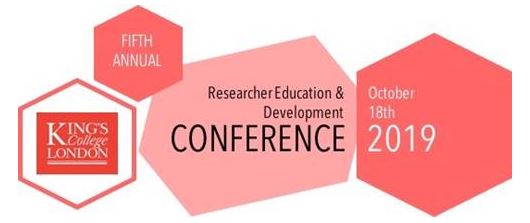
Date: October 18, 2019, 09.30-16.30
Venue: King’s College London, United Kingdom
Fee: £ 65
Registration deadline: October 16, 2019
Info and registration: ![]() Here
Here
Full Program
National guidance suggests that early career researchers can expect to use 15–20% of their research time for professional development. This is a generous offer, and so it is important that every researcher can find value and relevance in the professional development activities that institutions offer. Yet, what ‘valuable professional development' means for each researcher will be different. Identities at work, and at home, previous learning and work experiences, different national contexts, systemic inequalities, and future intended career trajectories, will all create different support and development needs for each individual.
If we start from the position of helping researchers to appreciate that learning is everywhere, not just in the training room, we can raise their awareness of the development that takes place through, for example, their peer-groups, committees, relationships and disciplinary networks. In tandem, we must also help researchers to navigate the huge amount of internet-based advice and guidance available to them in the form of blogs, webinars, podcasts, video series, online courses and social networks. Creating in-house development provision that resonates with each researchers’ needs and preferences, aligns with the expectations of the funders, and satisfies strategic drivers, layers complexity on complexity for best practice in researcher development.
With so much on offer, how can we ensure personalised learning for each researcher? This conference seeks to present and discuss themes that are related to the policies and practices of researcher development including but not limited to: identity, agency, choice, the hidden curriculum, adult learning, coaching, mentoring and self-reflection.
The fifth annual REDS conference will provide an opportunity to explore pedagogical, theoretical and conceptual approaches. The conference leaders also particularly wish to explore the wider role of researcher developers in influencing policy and strategy development in institutions.
Who should attend? Researcher development colleagues, careers consultants, staff developers, academic researchers in higher education disciplines, and HE policy makers.